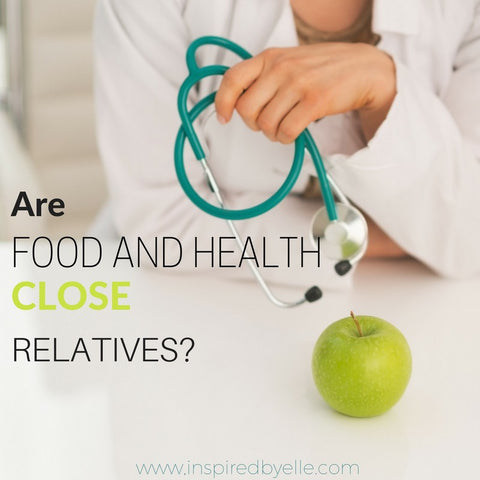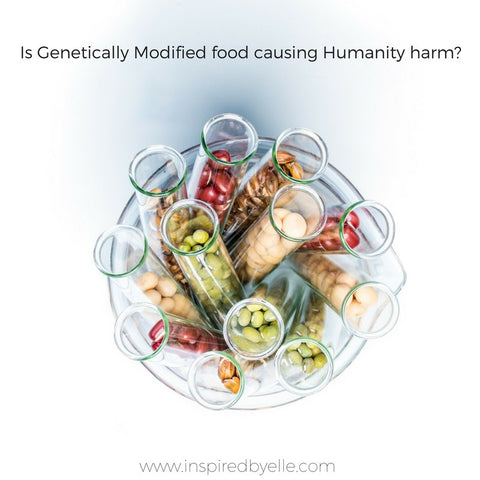Are Food and Health Close Relatives?
Are Food and Health Close Relatives?

Nutrition advice is hard to get away from in this day and age. However, with so many fad diets and conflicting opinions, which nutrition tips can be trusted? Is there a strict dietary regime supported by scientific hard data that we should all be following to live the fullest life we can? Or is nutrition inconsequential compared to other lifestyle choices such as exercise and lack of stress? Let’s take a non-biased look at food’s effect on the body and consider just how much the two are linked.
Organic versus GM (Genetically Modified)
Organic food is often hailed as being healthier for us. Of course, it also comes with a premium price tag – it’s 47% more expensive than processed food according to this Consumer Reports Study.
Should we all be paying extra to reap the nutritional benefits of this organic food? Well, some scientific studies seem to suggest that perhaps there aren’t any added nutrients within organic food that we can’t get in GM foods. Others strongly contest that there are links to cancers and infertility, however it must be noted that most of these are correlations with no hard science to back them up. Whilst the general consensus seems to be that there is no bonus to organic foods, some of these correlations may still need to be further tested to completely rule them out.
Even more difficult to determine is what constitutes organic food and what doesn’t. The Organic Seal is an identifier used to determine which foods are classed are organic, but not all of these foods are wholly organic. Packaging that reads ‘made with organic ingredients’ only has to have more than 70% organic ingredients, whilst products purely labelled ‘organic’ are classed as between 95% and 99% organic. Only labels which read ‘100% organic’ can be trusted if you’re living a wholly organic lifestyle. Given the rarity of such products, is it really worth it?
Does location matter?
Another claim often thrown around is that food grown or reared from certain areas of the world can be healthier. There is some truth to this in the case of crops, although it’s mainly down to soil quality, climate and not picking too early. Crops need a good amount of rainfall to feed the soil with nutrients, but similarly can’t be anywhere too cold where frost can also sap out nutrients. It’s for this reason why areas such as mainland Europe and California are centres of agriculture (and the Gobi desert – not so much).
Of course, that isn’t to say that we should all order our fruit and vegetables from abroad. In fact, it may be far more beneficial to source our crops locally – regardless of GM or organic. This is because the time spent shipping these foods causes a loss of minerals and vitamins. Equally, it is expensive to source basic products like fruit and vegetables from abroad, no matter how creative we purport to be in compiling a colourful larder. In fact, a study by Montclair State University found that the vitamin C content of broccoli was cut in half when shipped abroad as opposed to being sourced locally.
On a related note, it’s worth noting that nutrition in our supermarket fruit and vegetables have been falling over time. Organic defenders will claim that it’s to do with the increased heavy use of pesticides and chemical fertilisers, but could it simply be because we import more fruit and vegetables than ever before?
Another concern with importation of produce is the use of additives and preservatives to prolong the life of the food items. Whilst the world is a smaller place, changes in climate and the demand for more, and even exotic delicacies, has meant that supermarkets source their produce from worldwide locations. Often, this can be from remote locations which creates a logistics issue requiring careful planning to minimise journey times, of course whilst maintaining a healthy profit.
Location certainly matters to the French in terms of mineral water. They place great pride on the quality of water for bread making, but equally just for drinking. Their unique recipes for bread demand quality water. Evian is a highly popular French brand from the Évain-les-Bains area on the southern shores of Lake Geneva. The original founder, the Marquis of Lessert, claimed this water cured him of liver and kidney problems in 1789. Fiji water is equally popular, and is marketed as a designer mineral water. It is a natural volcanic mineral water, boasting as a natural source of silica, which removes toxins from the body.
It is slowly reaching the public domain, that maintaining an alkaline system is beneficial to cancer prevention as cancer thrives in acidity. Hydrogen infused water is also promoted as great for anti-ageing. Water and in particular a good quality water would appear to be paramount in maintaining a healthy system. Maintaining an alkaline system with consumption of fruit, vegetables and water is very important to your health wellbeing.
Superfoods and Danger Foods
Of course, location and processing aside, the kinds of food you eat is what matters most. Some of the danger foods are obvious such as foods and drinks containing trans fats, alcohol, lots of grain or too much sugar. Oddly enough, these foods are often triggers for people with leaky gut and other digestive allergies, although an overindulgence of these foods is unlikely to be the cause (nobody quite knows what causes food allergies from developing – although there are some disputable pointers towards vaccinations, over-cleanliness and, of course, GM foods).

Scientists may have found a link between allergy and autoimmune diseases, which are basically conditions where the immune system attacks normal tissues and cell believing them to be foreign bodies. Given this could be a precursor for other diseases, we perhaps should focus more on diet and in particular food in terms of disease prevention. Although the unique recipe for disease prevention is not known, it is clear that diet may be key to health.
When it comes to so-called superfoods there are many out there such as kale, garlic, broccoli, blueberries and quinoa. All of these foods contain larger amounts of vitamins and minerals than your average foods and there studies that show proof of antioxidants capable of preventing ageing and protecting against illnesses (studies involving the feeding of blueberries to rats have shown that the animals had increased memory afterwards).
That said, there are some arguments against superfoods that prove eating too much of these foods could be toxic. Those looking to live healthily and never be ill again should not live solely on superfoods. Fortunately, there are very few counter-arguments that claim eating too much sugar or fats is actually healthily.
Getting a Balanced Diet
Unsurprisingly, what we can learn from both superfoods and danger foods is that moderation is everything. The key to a balanced diet is the ‘balance’ part. But how do we know when we are achieving this balance?
There’s some strong support for the rainbow diet. This basically consists of eating lots of colourful foods whether they be broccoli, carrots or salmon as is a staple in the Mediterranean. A Harvard Medical School study has even found that such a diet can decrease the likeliness of getting cancer.
Are there certain foods that we should all be including in our diets? No one food is essential to our diet, just as we couldn’t live solely off one food (even if there is a strong case for potatoes).
Water, of course, is essential and we all need vitamins, minerals and proteins to function. Fortunately, we have the choice to select from a vast number of foods to get these important nutrients. Whilst we could all perhaps make improvements by eating more local produce, avoiding obvious danger foods and eating more vibrantly coloured natural foods, perhaps the key to living healthily is to not be too limiting with our diets. In other words, be careful when it comes to fussy eating and regimented dieting. It would perhaps be more beneficial to eat deliciously unique recipes containing all the colours of the rainbow.
~~~
If you have enjoyed this creative blog article by Elle Smith, please click here to explore her Creativity in the Kitchen section, where you will find a selection of unique recipes to tease your taste palette.
Leave a comment
Comments will be approved before showing up.


